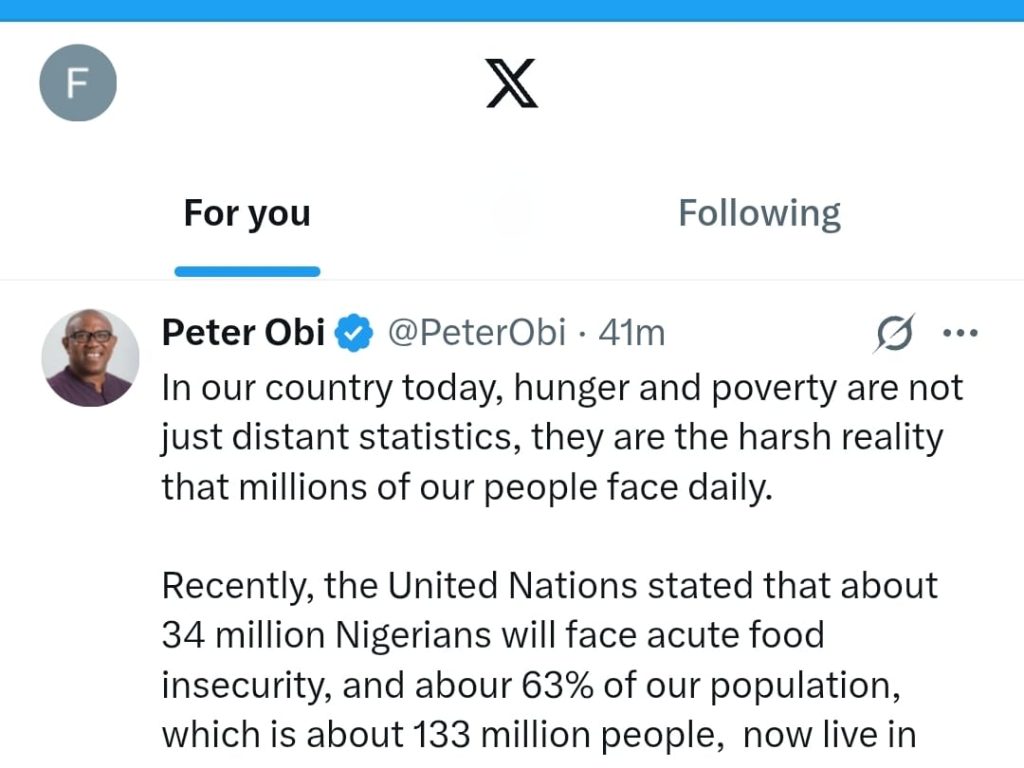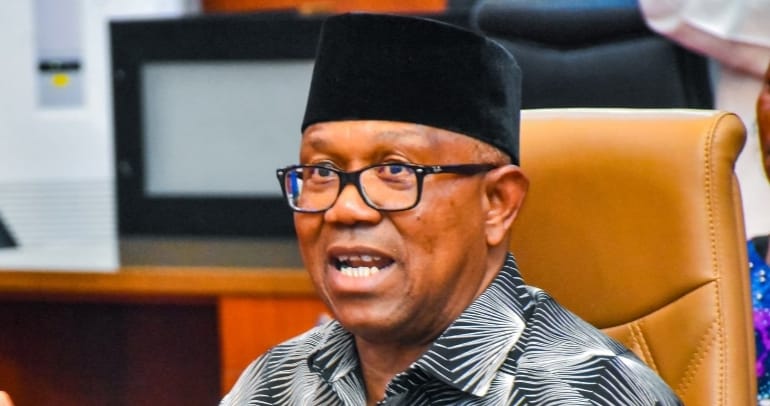Former Governor of Anambra State and Labour Party presidential candidate, Peter Obi, has lamented the deepening hunger and poverty in Nigeria, warning that millions of citizens are being pushed into hardship due to poor leadership and economic mismanagement.
In a post on his verified X (formerly Twitter) handle, Obi described hunger and poverty as the “harsh reality that millions of our people face daily” rather than distant statistics. He cited a recent United Nations report stating that about 34 million Nigerians will face acute food insecurity, while 63% of the population — approximately 133 million people — now live in multidimensional poverty.
Obi also pointed to rising inflation, which he said is “nearly 30% even with suppressed statistics,” as well as high unemployment and the collapse of Nigeria’s once-thriving middle class. “Families who once lived stable lives are now slipping into poverty,” he said, attributing the crisis to “incompetent leadership without capacity and compassion.”
The former presidential candidate drew parallels with Argentina’s recent turnaround, noting that both countries’ current leaders assumed office in the same year. In early 2024, he said, over 52% of Argentina’s population lived in poverty, inflation exceeded 200%, and economic confidence had collapsed. Yet within two years, decisive reforms — including cutting waste in governance and prioritizing economic stability — reduced the poverty rate to 38.1%, extreme poverty to 8.2%, and monthly inflation to around 2–3%. By 2025, urban poverty had fallen to 31.6%, investor confidence returned, and daily life began to improve.
Obi stressed that while two years may not be enough to completely transform a nation, it is “more than enough to kickstart the transformation journey” if leadership is honest, focused, and committed to the people.
“Nigeria can work. We can reduce hunger and restore dignity to Nigerians,” Obi declared. “But this will not happen while corruption and criminality dominate our governance.”
He called for leaders who will put citizens first, manage resources prudently, and focus on critical areas such as education, healthcare, and poverty reduction, following the example of other nations that have achieved remarkable results through disciplined governance.

Credit: :PeterObi via X.








Leave a Reply